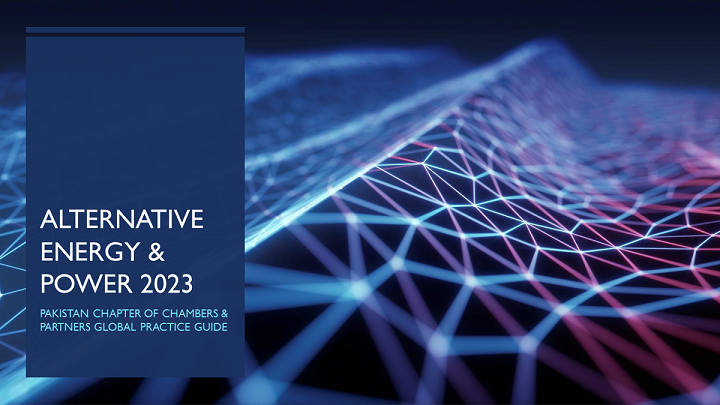
We authored the Pakistan Chapter of the 2023 edition of the Chambers & Partners Global Practice Guide, which provides an overview of Pakistan’s power sector, including the legal framework governing the structure, ownership, and regulation of the industry.
The primary law regulating Pakistan’s power sector is the Regulation of Generation, Transmission and Distribution of Electric Power Act, 1997 and amendments. This established the National Electric Power Regulatory Authority (NEPRA) as the sector regulator. NEPRA issues licenses for generation, transmission and distribution activities and determines tariffs.
Both state-owned and private companies undertake generation. Private independent power producers expanded significantly over the past two decades under government power policies offering incentives. Transmission is dominated by the state-owned National Transmission and Despatch Company (NTDC), but some private companies have special-purpose transmission licenses. Distribution is mainly through state-owned companies except for K-Electric, privatized in 2005.
Recent amendments to the NEPRA Act aim to introduce more competition by licensing market operators, power traders and suppliers. This will gradually transition the market to a competitive trading bilateral contract model.
Federal and provincial environmental protection agencies grant environmental approvals. Pakistan has laws on climate change but no policy yet for early retirement of carbon-based generation. The government aims to expand renewable power to above 50% of the total generation mix.
Generation facilities require licenses and tariff approvals from NEPRA. Transmission and distribution activities also need NEPRA’s licensing and tariff approvals. The NTDC plans generation capacity expansion, and the system operator controls supply and dispatch.
The power sector faces challenges, including heavy reliance on expensive imported fuels, the unwillingness of distribution companies to enable wheeling, ageing infrastructure and institutional inefficiencies leading to circular debt. Despite these challenges, government policies attract investment in conventional and renewable generation. Pakistan’s renewable energy potential and growing projected demand remain a key driver.
For an in-depth examination of the legal framework, industry structure and ownership, licensing and approvals, environmental regulation, market reforms, challenges and risks in Pakistan’s alternative energy and power sector, read the Pakistan chapter here.
For more information, contact our Partner, Nadir Atlaf, today.
This article is not legal advice; it provides information of general interest about current legal issues.
RIAA Barker Gillette is Pakistan’s premier law firm, with an on-the-ground presence in four major cities in Pakistan: Karachi, Islamabad, Lahore, and Peshawar, and affiliated offices in Dubai (DIFC) and London.
The firm practices in all areas of corporate, commercial and dispute resolution law. Leading international legal directories consistently recognize the firm as a top-tier law firm in Pakistan.

RIAA Barker Gillette is the exclusive member firm in Pakistan for Lex Mundi, the world’s leading network of independent law firms with in-depth experience in over 125 countries worldwide.
